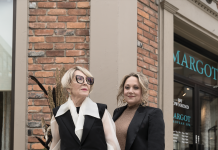
Holistic medicine is a discipline that considers the whole person and how he or she interacts with his or her environment. It emphasizes the connection of mind, body, and spirit. Health is more than just not being sick, holistic practitioners say. Because the specialty is not among our annual Top Docs categories, we decided to chat with Dr. Malcolm Sickels, who maintains a holistic practice in Ann Arbor.
Sickels decided to become a doctor a little later than most of his peers, thanks to a detour working in the natural-foods department of a store after college. Conversations with customers who expressed problems communicating with their doctors inspired Sickels to study medicine. He went to the University of Michigan Medical School and did his residency in family medicine at Flower Hospital in Sylvania, Ohio.
Certified in family medicine, holistic medicine, and chelation therapy, and trained in bio-identical hormone replacement, he established a holistic family practice in Ann Arbor.
Is there a separate school to study holistic practice?
There is no central place where you can get it. I’ve spent a lot of time reading [and] going to conferences. There are a few organizations of physicians who all do this and get together twice a year to have educational conferences.
How is your office different from that of the typical practitioner?
I’m not seeing 30 patients a day, and so I only have one room for me because I can only be in one room. I also have all my references in the room with me. So I don’t really see the point in having three or four exam rooms and running around between them.
I read on your Web site that you emphasize talking with your patients.
The Latin root of the word “doctor” is docêre (to teach). It’s not somebody who hands out medications. Doctors are under enormous financial pressure to produce and to get more patients through.
Do you prescribe pharmaceuticals?
As far as the insurance companies are concerned, I am a conventional, fully licensed physician, so I have the capacity to prescribe medications or do anything else another doctor would do. And I do prescribe medications, probably at much lower rates than other doctors do, since I have other things at my disposal than conventional medications. I don’t let drug reps in [my office] at all. It’s really a scandal within medicine that we’re so tied in to these pharmaceutical companies.
Do your fellow physicians treat you differently because you add the holistic element to your practice?
I haven’t gotten too much bad feedback. When I was applying for residencies, I was pretty up front about being interested in alternative medicine. Every place I went, they would trot out their usually one faculty member who had some interest in it. So I think there’s some respect for it in conventional medicine circles.
Are you finding more patients coming to you, particularly with the turn in recent years toward a holistic approach to life?
My wait for a new patient is at least four months. I’ve also hired a nurse practitioner that I’ve gotten up to speed on a lot of our holistic and alternative treatments, and his schedule is starting to fill up, too. There’s definitely a big interest in it among patients, and I think there are a lot of patients who are put off by the four-month wait. It’s not unusual for people to make an appointment with me and still go to somebody else, and then they see me.
Do most insurers work with you?
I had been in Blue Cross/Blue Shield Michigan’s PPO. As part of their PPO, they want to stick with the providers that keep costs low. They noticed that I tend to bill at a higher level because I spend time with people, and then they said, well, ‘We don’t want you in our PPO because you cost more per visit than these other doctors do.’ I have a lot of patients with that insurance, and I thought that’s not really fair to my patients, so I contested it with Blue Cross.
I pointed out I’m actually saving them considerable money because my patients aren’t going to the ER and specialists and that sort of thing. But they kicked me out of their PPO.
Did you make a conscious decision to become an M.D. as opposed to an N.D. (Naturopathic Doctor)?
Yes. Before I went to medical school, I was originally looking at going to a naturopathic college. At that point, there were three in the U.S. The problem with naturopathy is the licensing. It’s only licensed in a handful of states, and in other states, like Michigan, there’s no licensing at all. So anybody can call themselves a naturopath in Michigan. And there are a lot of people calling themselves naturopaths here who have never been to a college of naturopathic medicine.
I think it’s a little disingenuous to do that because there are people who have spent four years at a college for naturopathic medicine and really learned that stuff, but then somebody else comes along and puts the same letters after their name and who knows what they’ve done? So it would be a good thing to get licensing here.
Are you affiliated with a hospital?
If my patients go to a hospital, there are hospitalists that will take care of them there. These are doctors that all they do is go to the hospital, and they’re really good at that. … It’s when we get to the chronic problems that conventional medicine starts breaking down and not working so well.
|
|
|









